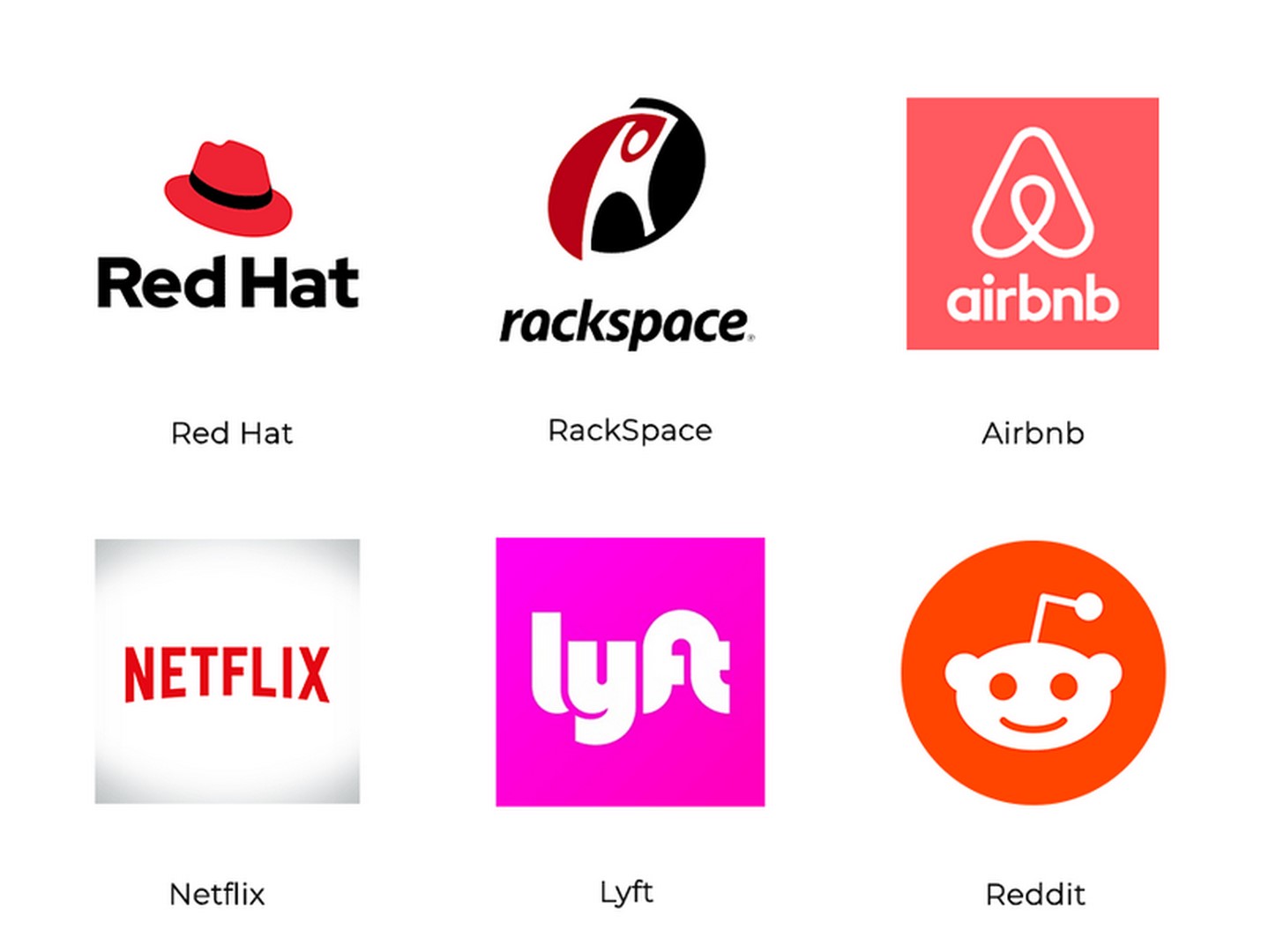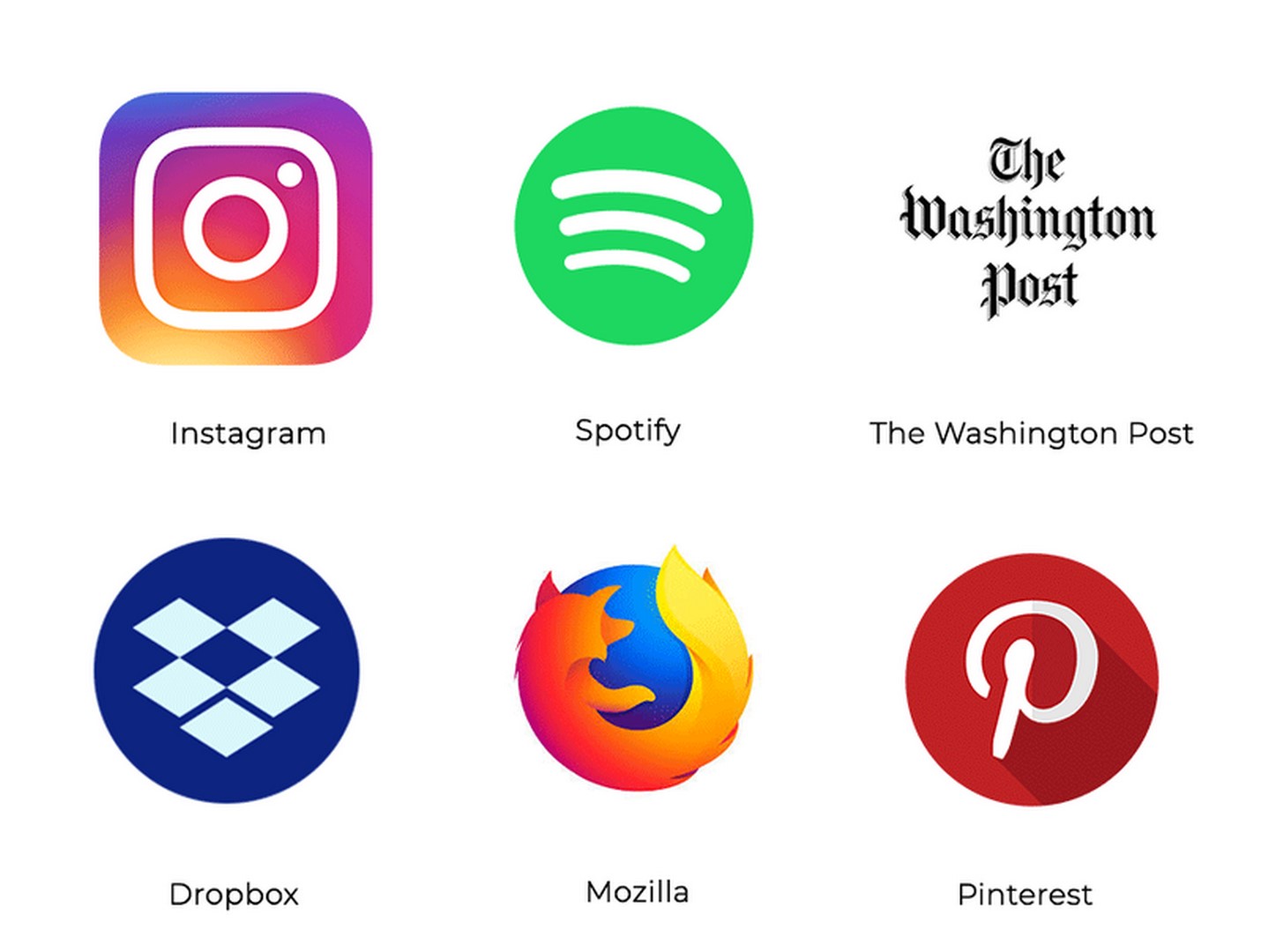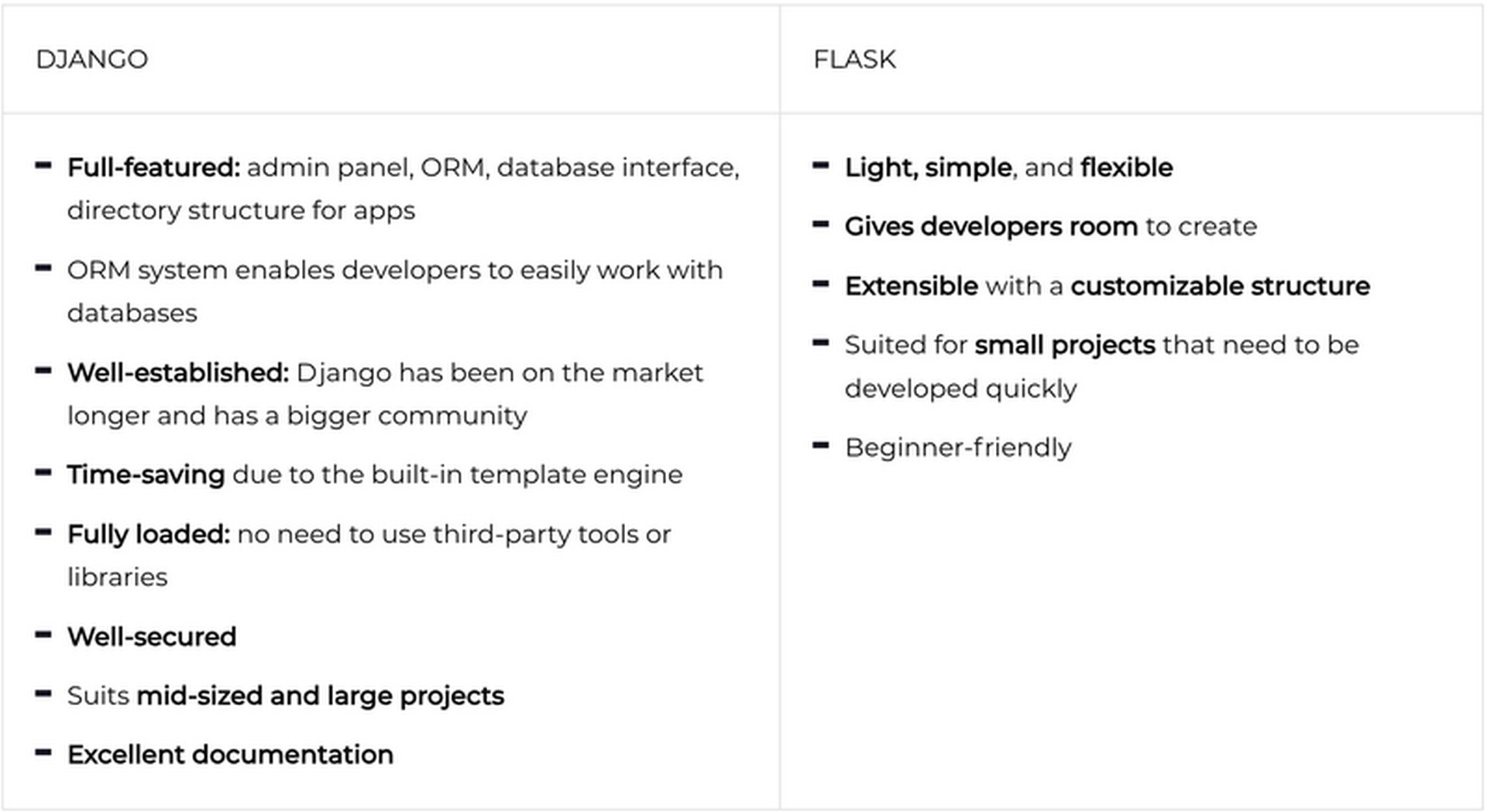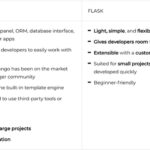In the realm of Python web development, the choice between Flask and Django often emerges as a critical decision for project success. Both frameworks offer distinct advantages and cater to varying project requirements. To aid in your decision-making process, this article explores the nuances of Flask and Django, highlighting their strengths, differences, and ideal use cases.

Understanding Django and Flask
Django and Flask, both written in Python, represent prominent web development frameworks with unique origins and philosophies.
Django: The Full-Featured Toolkit
Originating in 2003, Django is an open-source framework following the Model–Template–View (MTV) pattern. Engineered for simplicity and rapid development, Django emphasizes reusable components and minimal code. With a comprehensive ecosystem and built-in solutions, Django simplifies complex web app development.
Flask: The Lightweight Microframework
Contrary to Django’s comprehensive approach, Flask emerges as a microframework offering simplicity and flexibility. Initially conceived as an April Fool’s joke, Flask prioritizes minimalism and modularity. Its lightweight nature and extensibility make it an ideal choice for small to mid-sized projects with unique requirements.
Differentiating Django and Flask
To ascertain the ideal framework for your project, it’s essential to consider the fundamental differences between Django and Flask.
Django: Full-Featured MVC Framework
- Data Models: Django incorporates its own ORM for seamless database interaction, facilitating robust data modeling and management.
- Development Philosophy: Django streamlines website development through reusable components and rapid prototyping, making it suitable for large-scale applications like e-commerce platforms and CMSs.
Flask: Microframework for Custom Solutions
- Modularity: Flask’s minimalist design allows developers to cherry-pick components based on project requirements, fostering flexibility and customization.
- Scope: With a focus on doing one thing well, Flask is well-suited for smaller projects, such as forums and personal blogs, where simplicity and speed are paramount.

Evaluating Frameworks: Advantages and Disadvantages
A comparative analysis of Django and Flask across various metrics provides insights into their suitability for different projects.
Performance
Both Django and Flask exhibit commendable performance, supporting high-traffic websites with scalable and secure architectures.
Packages
- Flask: Offers flexibility and extensibility through external libraries, enabling developers to implement tailored solutions.
- Django: Boasts a vast ecosystem of built-in packages, streamlining development with pre-existing solutions for diverse requirements.
Community Support
- Django: Benefits from a robust and active developer community, facilitating knowledge-sharing and support.
- Flask: While smaller in comparison, Flask’s community offers resources and assistance, albeit to a lesser extent than Django’s.
Security Measures
- Django: Provides built-in mechanisms for mitigating common security threats like XSS, CSRF, and SQL injection, ensuring robust application security.
- Flask: Leverages libraries like Flask-Security to bolster application security, offering comparable protection to Django.
Use Cases
- Django: Ideal for fast-paced development of complex web applications, Django excels in scalability and maintainability.
- Flask: Suited for smaller projects requiring custom solutions and rapid prototyping, Flask empowers developers with granular control over project components.

Case Studies: Real-World Applications
Django Projects
- Population Explorer: A SaaS project leveraging Django’s scalability and data management capabilities to provide demographic analysis tools.
- Possio: A real-time vehicle tracking platform powered by Django’s robust backend architecture.
Flask Projects
- Cybertunity: A knowledge-sharing app facilitating cybersecurity discussions among coworkers, showcasing Flask’s simplicity and customization options.
Making the Choice: Flask vs Django
In the metaphorical dichotomy of a hammer versus a toolbox, Django represents the comprehensive toolkit, offering pre-built solutions and scalability. Conversely, Flask embodies the versatile hammer, enabling precise and tailored solutions for unique project requirements.
Decision Factors:
- Django: Optimal for time-sensitive projects or those with budget constraints, particularly suited for MVPs, e-commerce platforms, and government websites.
- Flask: Ideal for small to mid-sized projects necessitating custom solutions and rapid development, especially well-suited for prototyping.
In conclusion, the selection between Flask and Django hinges on project specifics and development preferences. By aligning framework choice with project requirements, developers can harness the power of Flask or Django to realize their vision effectively.
We trust that this comparative guide to Python Flask vs Django has equipped you with the insights needed to make an informed decision for your next web development endeavor. For further assistance or consultation with Globaldev specialists, feel free to reach out to us.
In the interim, we recommend delving deeper into Python and Django to expand your understanding of these dynamic platforms.













